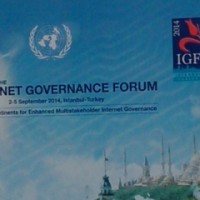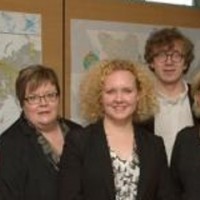 Gonzalo López-Barajas/ @Gonzalo_LB
Gonzalo López-Barajas/ @Gonzalo_LB
Public Policy Manager, Telefónica.
 It’s been a while since IGF 2014 came to an end. We have had now time to step aside, recap and try to get the readings from all Net Neutrality (NN) meetings. And from my personal point of view there were a few.
It’s been a while since IGF 2014 came to an end. We have had now time to step aside, recap and try to get the readings from all Net Neutrality (NN) meetings. And from my personal point of view there were a few.
The first session on Net Neutrality was the one by the Dynamic Coalition on Network Neutrality, where their Annual report was discussed about. Mr. Vince Cerf, recognized as one of “the fathers of the Internet”, gave a keynote speech on NN and he highlighted many relevant issues.
He recalled how the debate started in the US on concerns about consumer choice: lack of or little competition in the provisioning of broadband services could lead to ISPs becoming gatekeepers of the Internet.
For him, the most relevant outcome of this debate is to assure that the users really do have a choice. He concluded by saying NN does not mean that every packet has to be treated exactly the same way, as different services have different needs such as low latency or high capacity. To the surprise of many, he disagreed with the NN interpretation stating that you couldn’t charge for more usage; he in fact specified it’s understandable that you might actually have to pay more if you use more of the capacity.
And this is one of my readings, Mr. Cerf framed the debate accurately, NN is a competition issue. Thus, it should be treated as such and dealt by Competition Authorities.
Interesting was also the intervention from Roslyn Layton, PhD Fellow at Aalborg University, who went through the econometric model she was trying to build to the cause effect relation between Network Neutrality and fostering innovation. She highlighted many challenges to build the model, from different ways to account investments by different companies, to different Net Neutrality frameworks across the world, to models not considering increasing efficiency of networks and services with time … Unfortunately the results are conflicting and inconclusive.
Alejandro Pisanty, Professor at the National University of Mexico, commented on innovation, and how it should be protected and dealt carefully for Telcos, OTTs and small start ups. This was one of the first times I heard from a non-telco participant that Network Neutrality could impede innovation in the Telco market depending upon how the Network Neutrality rules are written.
During the debate, and going in the direction of framing Net Neutrality as a competition problem, a representative from Russian Station for Telecommunications highlighted how in Moscow, with 8 broadband providers fiercely competing, broadband prices are ok ($25 a month for 100Mb) and there is no commercial discrimination of Internet service. An anecdotal evidence competition is the way to work with the net neutrality problem.
Christopher Yoo, professor at the University of Pennsylvania did also intervene at the debate introducing new ideas, the expansion of the NN debate to all the players in the Internet ecosystem: search engines, mobile handsets, platforms, social networking… and how this expanded NN concept, named Platform Neutrality, has been proposed in report by French think tank. This enlightening report –yeah, I read the English version before the IGF– is a report by the French National Digital Council, or CCNum, and under the title “Platform Neutrality: building an open and sustainable digital environment” gives its views after been questioned by the French government on the need to legislate on the protection of freedoms on the Internet.
The debate, as it could have not been other way, raised the question about if zero rating tariffs becoming widely use in developing countries were a violation of Net Neutrality. There was not time to discuss about this topic, so the question was left unanswered. Not a big deal, since another full debate on that same topic was just about to start… “Net Neutrality, zero rating and development: what’s the data?”. And I can tell you it was a truly interesting and exciting debate. Stay tuned for an update on zero-rating in my next post!
PS. IGF has published the the Dynamic Coalition on Network Neutrality session transcript and video, both available through the Internet








